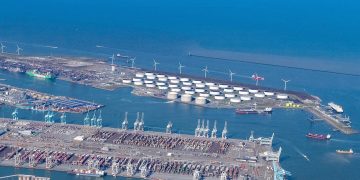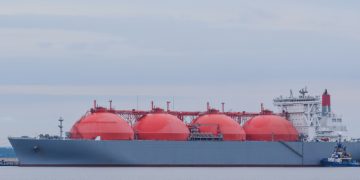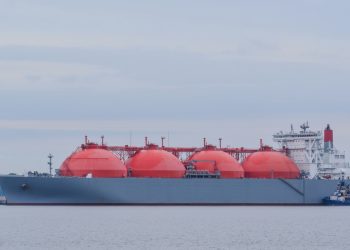The Port of Antwerp-Bruges has launched the Methatug, the world’s first methanol-powered tugboat, marking a significant milestone in their journey towards a climate-neutral port by 2050.
The Methatug, financed by the Horizon 2020 European research program as part of the FASTWATER project, showcases methanol’s potential as a sustainable fuel for the maritime industry. Methatug’s dual-fuel engines, converted from an existing tugboat, allow it to run on a mixture of methanol and conventional fuel, highlighting its versatility and environmental benefits.
The Methatug is a new and essential step in our efforts to make our own fleet greener and become climate neutral by 2050. Thanks to projects such as this, we are paving the way and hope to be an example and a source of inspiration for other ports.
… said Jacques Vandermeiren, CEO of Port of Antwerp-Bruges
The FASTWATER project, which involves multiple international partners, aims to prove the feasibility of methanol propulsion in various types of vessels. Besides the Methatug, the project includes conversions of a pilot boat in Sweden, a river cruise ship in Germany, and a coastguard vessel in Greece. The Methatug itself is 30 meters long, with a bollard pull of 50 tons and the capacity to store 12,000 liters of methanol, sufficient for two weeks of operation.
Just like with the Hydrotug, the world’s first hydrogen-powered tugboat, this project confirms our pioneering role in the field of energy transition. The ecosystem of our port platform forms an ideal, large-scale testing ground for this.
… commented Annick De Ridder, Vice-Mayor of the City of Antwerp and President of the Board of Directors of Port of Antwerp-Bruges
This initiative is part of the broader greening program at the Port of Antwerp-Bruges, which already includes the Hydrotug, the first hydrogen-powered tugboat, and energy-efficient RSD tugboats.
Methatug specifications
- 11 meter width, 29.5 meter length
- Weight of 584 tons
- 50 ton bollard pull
- Storage of 12.000 litres of methanol
- two ABC 8DAC dual fuel medium-speed engines
The port is also on track to introduce an electrically powered tugboat later this year, positioning itself as a multi-fuel hub where vessels can access a variety of low-carbon fuels such as methanol, hydrogen, and electricity. This commitment to sustainable innovation aims to inspire other ports and set a global example in the transition to renewable energy sources.
Methanol has everything to become the fuel of the future and play a pioneering role in the greening of the shipping industry. Thanks to the expertise and efforts of the different partners from the consortium, we are now able to take important steps with the Methatug to demonstrate its feasibility.
… concluded Prof. Sebastian Verhelst, Project Coordinator FASTWATER



























































